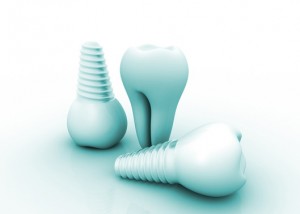Tooth Loss Can Have Far-Reaching Effects on Your Dental Health

In cases of trauma or injury, depending on the type of damage sustained by the tooth, the surrounding structures in the mouth may also suffer damage. Serious impact from playing contact sports, a vehicle accident, chewing on things that a person shouldn’t, or suffering a fall can result in a chipped or broken tooth, or even loosen a tooth within the jawbone. If treatment is sought immediately, the dentist may be able to save the tooth but in some cases the tooth is extracted to prevent further damage to the surrounding teeth, bones, and tissue.
When a tooth is infected, abscessed, or heavily damaged from a large cavity, its overall strength is reduced and the likelihood of the tooth breaking or falling out increases. To reduce the risk of the tooth falling out on its own, it is usually extracted if treatment becomes too complicated. Without a tooth to hold that portion of the jaw and gums, the body sees that space as less important and it begins reassigning resources to more important structures, like the remaining teeth.
Regardless of the cause, the missing tooth creates a vulnerable spot in the jawbone. The neighboring teeth will often start to move in an attempt to close the space where the lost tooth existed. Opting for a dental implant can preserve the jaw, gums, and adjacent teeth. The dental implant is surgically placed within the jawbone, serving the same role as the roots of the missing tooth. The crown attached to the top of the implant supports the adjacent teeth and keeps the bite balanced to prevent uneven impact.
For more information on dental implants, contact the office of Owen C. Mandanas at 907-276-5522 and schedule your professional consultation today.
